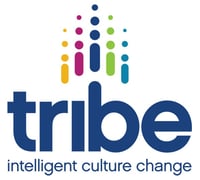
How to change by accepting things as they are

You could list countless obstacles which make culture change in business so hard, but one of the most compelling is perception, or perhaps deception. When you’re at the top it’s easy to convince yourself that your organisation is one big happy family, working towards a common goal with passion and enthusiasm (and crucially) in the most effective way possible.
Sadly, reality isn’t always like that in my experience, especially given the examples I’ve seen in numerous organisations and case studies over the years. Interestingly, in extreme cases of cultural immaturity, the current clash between Russia and the Ukraine highlights how much influence history still has over our future. I’m not saying that every organisation is like a fractured ex-communist 80’s mega-bloc but, well, if the shoe fits…
Day-to-business is complex and when you throw accountability into the mix alongside ambitious, career-driven individuals, it’s difficult to persuade them to put aside individual gain and recognise the importance of working towards a common goal that benefits the majority. In fact, one of the strongest hallmarks of world-class culture, safety or otherwise, is transparency. That’s the very thing ambitious, career-driven and power-hungry managers are incentivised to fear.
OK, maybe your organisation isn’t packed to the rafters with Gordon Gekko clones but there are very real drivers for everyone in a typical business to avoid transparency or focus on individual gain over the common good. The global recession certainly brought one of the strongest drivers (the fear of losing your job) into strong focus.
Tribal warfare
To address the problem, first you must recognise and accept reality for what it is within most organisations: less happy family and more group of tribes who’ve agreed an uneasy truce for the sake of day-to-day progress.
Next start looking at what bridges you can build between these different tribes. Safety’s a great topic for people to agree upon because everyone universally agrees they have the right to go home injury-free at the end of the day. Then you can use that as a platform to build tools, initiatives and working practices which bring people together under that unified banner. So eventually that uneasy truce turns into at least a peace treaty.
Full tribal union will take much longer but it’ll be worth the journey (accepting the ubiquitous pro-independence brigade of course).
About Mark Ormond
Managing Director
Mark is an experienced consultant and strategic leader with a background in information systems, culture and engagement. He has over a decade of experience partnering with a wide variety of large organisations internationally, helping them create more mature cultures and higher levels of engagement. Latterly this has been done as head of Tribe Culture Change, a consulting organisation formed from the partnership of Hill Solomon and JOMC, organisations with over 40 years collective experience in this area.



